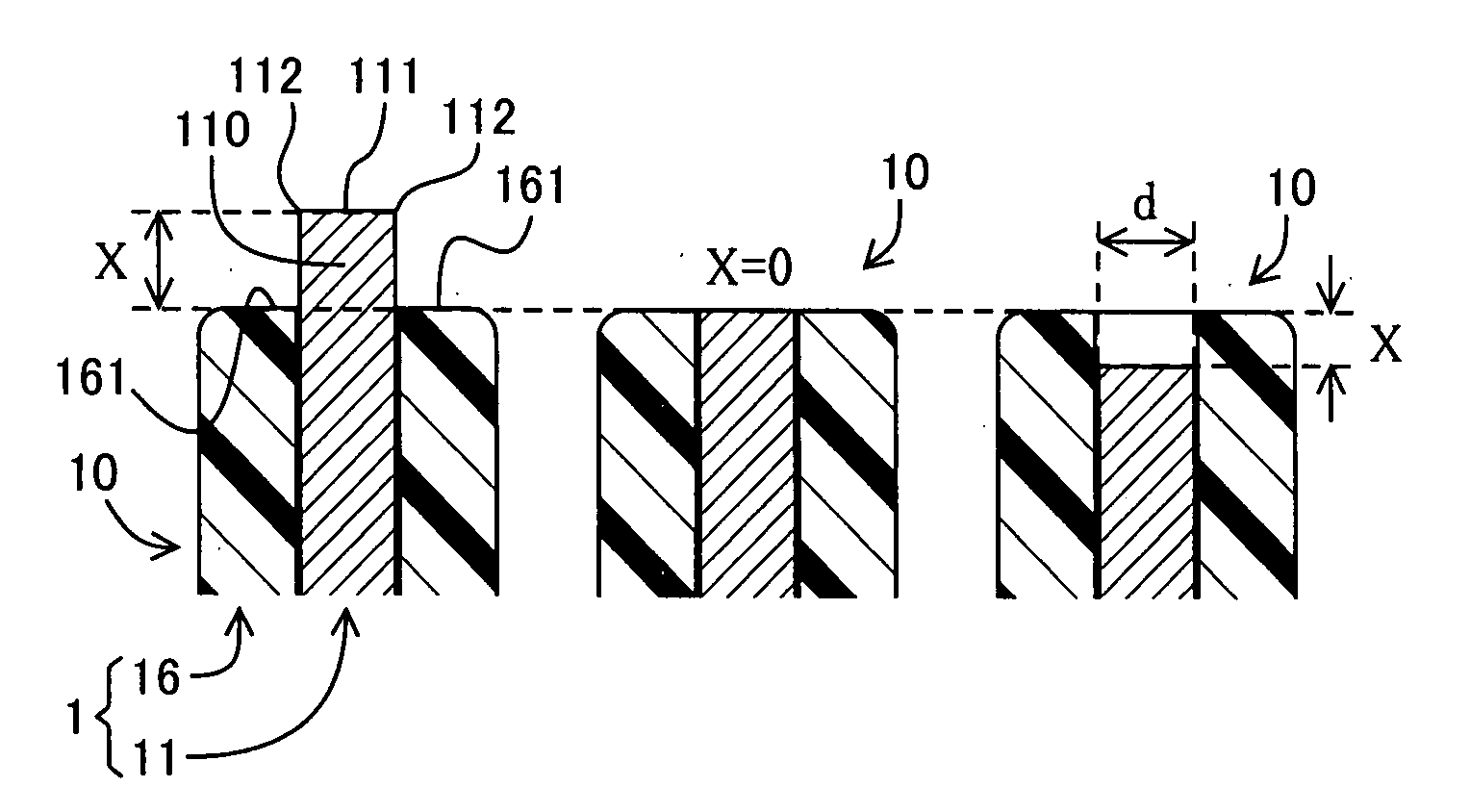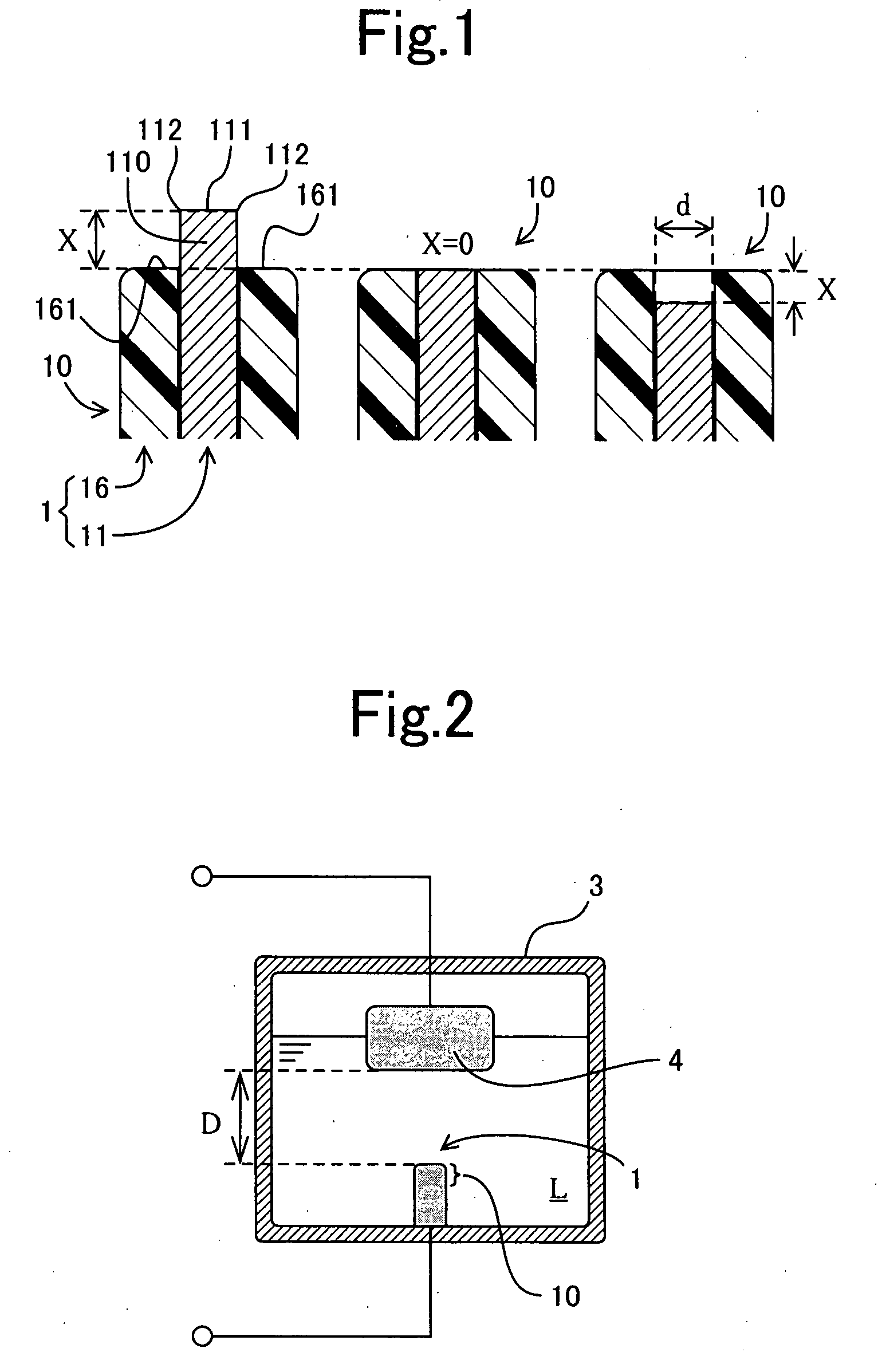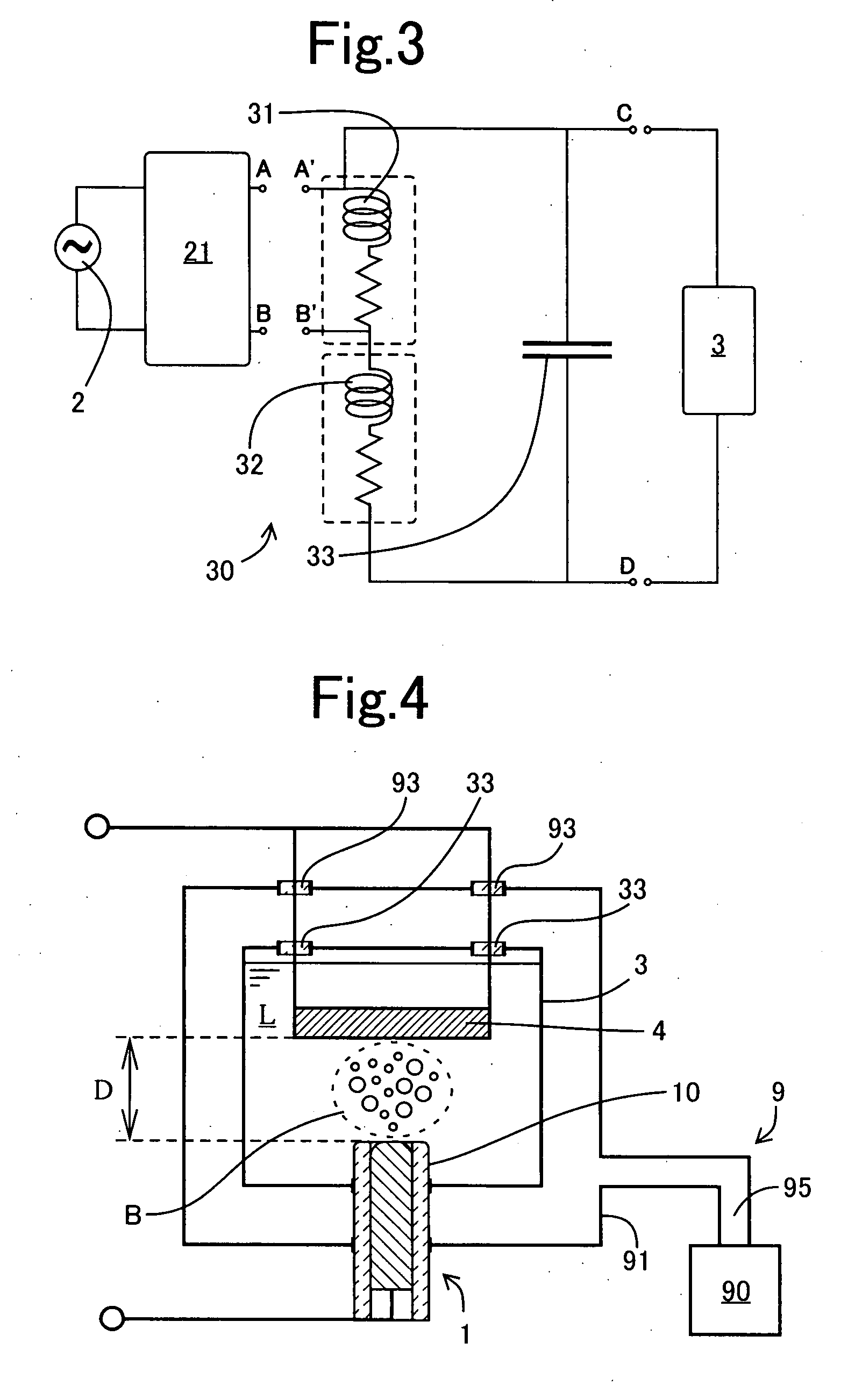In-Liquid Plasma Electrode, In-Liquid Plasma Generating Apparatus and In-Liquid Plasma Generating Method
a plasma electrode and liquid technology, applied in the field of plasma technology for generating plasma in liquid, can solve the problems of electromagnetic wave attenuation, electromagnetic wave generation, electromagnetic wave generation, etc., and achieve the effect of high energy in-liquid plasma
- Summary
- Abstract
- Description
- Claims
- Application Information
AI Technical Summary
Benefits of technology
Problems solved by technology
Method used
Image
Examples
first embodiment
[0058]An in-liquid plasma electrode 1′ comprises a conductive member 12 formed of metal and an insulating member 17. FIG. 5 is an axially cross sectional view of an electrode end portion 10′ of one example of in-liquid plasma electrodes 1′ of a first to fifth embodiments. Employed as the conductive member 12 was a cylindrical column (diameter: 3 mm (d=3)) formed of pure aluminum (A1050 (JIS)) and having a flat end surface 121 on one end. In this embodiment, this end surface 121 was used as the electric discharge end surface. At an edge of the end surface 121, a chamfered portion 122 of R=0.2 mm was formed. In addition, employed as the insulating member 17 was a cylindrical ceramic insulating tube (inner diameter: 3 mm, outer diameter: 5 mm, length: 25 mm). The conductive member 12 was inserted into the tubular insulating member 17. At the electrode end portion 10′ of the in-liquid plasma electrode 1′, the insert position of the conductive member 12 was adjusted to determine a distan...
second embodiment
[0063]In a second embodiment, as an example of a liquid containing a hydroxyl group, alcohol was used as the liquid L. Namely, plasma was generated by the in-liquid plasma generating apparatus in a similar way to the first embodiment, except that the liquid L was ethanol and the in-vessel pressure was set at 100 hPa. The in-liquid plasma electrodes 1′ used at this time were respectively assembled to the vessel 3 in such a manner that x=1, x=0, and x=−1. Regarding the respective electrodes, values of the high frequency electric power when an electric discharge occurred are shown in Table 2.
TABLE 2CONDUCTIVE MEMBERSIZEDISTANCEKIND OFINTERELECTRODEIN-VESSELELECTRIC POWER ATELECTRODEMATERIALd [mm]x [mm]LIQUIDSDISTANCE D [mm]PRESSURE [hPa]PLASMA GENERATION [W]#2-1Al (A1050)3+1ETHANOL2100100#2-2Al (A1050)30ETHANOL2100100#2-3Al (A1050)3−1ETHANOL2100100
[0064]Even when the liquid L was ethanol, plasma could be generated. In addition, even when the electric discharge end surface 121 protruded...
third embodiment
[0066]Plasma was generated by the in-liquid plasma generating apparatus in a similar way to the first embodiment, except that the conductive member 12 had a diameter of 1.5 mm (d=1.5), the liquid L was ethanol, the interelectrode distance D was 3mm, and the in-vessel pressure was 100 hPa. The inner diameter of the insulating member 17 was also changed to 1.5 mm so as to fit the diameter of the conductive member 12. The in-liquid plasma electrodes 1′ used at this time were respectively assembled to the vessel 3 in such a manner that x=±4, ±3, ±1, 0. Regarding the respective electrodes, values of the high frequency electric power when an electric discharge occurred are shown in Table 3.
TABLE 3CONDUCTIVE MEMBERSIZEDISTANCEKIND OFINTERELECTRODEIN-VESSELELECTRIC POWER ATELECTRODEMATERIALd [mm]x [mm]LIQUIDSDISTANCE D [mm]PRESSURE [hPa]PLASMA GENERATION [W]#3-1Al (A1050)1.5+4ETHANOL3100>600#3-2Al (A1050)1.5+3ETHANOL3100480#3-3Al (A1050)1.5+1ETHANOL3100200#3-4Al (A1050)1.50ETHANOL3100200#3-...
PUM
 Login to View More
Login to View More Abstract
Description
Claims
Application Information
 Login to View More
Login to View More - R&D
- Intellectual Property
- Life Sciences
- Materials
- Tech Scout
- Unparalleled Data Quality
- Higher Quality Content
- 60% Fewer Hallucinations
Browse by: Latest US Patents, China's latest patents, Technical Efficacy Thesaurus, Application Domain, Technology Topic, Popular Technical Reports.
© 2025 PatSnap. All rights reserved.Legal|Privacy policy|Modern Slavery Act Transparency Statement|Sitemap|About US| Contact US: help@patsnap.com



